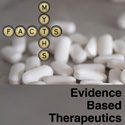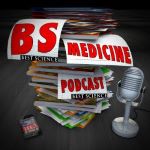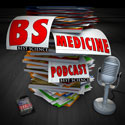In episode 125, Mike and James get back to the listener questions and discuss calcium, probiotics, and clopidogrel. By the end of the podcast Mike threatens to jump out of a 17 story building unless he gets a high fat meal with some caffeine. Out of respect for Mike’s surrogate markers James steals Mike’s Egg McMuffin and coffee and eats it himself.
Show notes
1) Calcium and MI
BMJ 2011;342:d2040
2) Probiotics for acute infectious diarrhea
Cochrane review
2) Clopidogrel
N Engl J Med 2010;362:1374-82
N Engl J Med 2010;362:1441-3
Ann Pharmacother 2008;42:550-7
Arch Intern Med 2007;167:1593-9
N Engl J Med 2007;357:2001-15
3) Clopidogrel Guidelines
NHS 2007 Northwest London Cardiac Network:
Bare Metal: 1 month
Drug Eluting Stent: 12 month
American College of Chest Physicians (2008)
No stent: 12 months
Bare-metal: 12 months
DES: 12 months (or more with no contraindications)
Veterans Affairs (August 2009)
Bare Metal: 1 month minimum, up to 12 months
DES: 12 months – or longer duration if
No bleeding risk and “complex anatomy”
Stent thrombosis indefinite unless bleed risk
4) Prasugrel
N Engl J Med 2007;357:2001-15
5) High fat followed by caffeine
No comment!!!!



